2023 vs 2022 – UK Broadband and Mobile Speeds vs the World

As usual, we’re ending 2023 by taking a look back to see how the United Kingdom’s position, at least in terms of the top 50 fastest countries for both fixed broadband ISP and mobile (4G, 5G) data speeds, has changed since 2022. The UK fell from 44th to 51st for mobile and was unchanged at 56th for fixed lines.
The following report was created by tracking the publicly available data released via Ookla’s popular Speedtest.net service for benchmarking internet connections around the world. Such services do have caveats, such as the fact that they can be impacted by other areas of the connection (e.g. slow Wi-Fi, local network congestion, the performance of speedtest.net’s own servers and consumer package choice), but these issues will be shared by all the countries in this study.
Otherwise, the main differentiator for speeds between countries tends to stem from the balance between network availability and the take-up of faster connection types. For example, countries with a high coverage of gigabit-capable broadband networks (FTTP, DOCSIS 3.1 – 4.0 etc.) or strong 5G mobile services (with plenty of radio spectrum to harness) will naturally rank highest in the table.
In terms of the UK, we’ve seen a strong and continuous improvement in the availability of both faster fixed and mobile networks. For example, Ofcom recently revealed (here) that 1Gbps capable fixed gigabit broadband networks had reached 78% (up from 70% last year), which falls to 57% when only looking at full fibre / FTTP lines (up from 42%).
As for 5G mobile, it is now available from at least one MNO (operator) in the vicinity of around 85-93% of UK premises (up from 67-78% last year).
Top 50 Fastest Countries for Broadband in 2023
Overall we can see from the data below that fixed and mobile speeds have continued to improve across the world but, despite big improvements in UK full fibre and 5G coverage, other countries still seem able to improve their real-world performance at a faster or similar pace.
Part of the issue here may be because the take-up of full fibre and gigabit-capable broadband lines in the UK is still in the early phase of growth and adoption often lags behind new network build (i.e. it takes time to grow, often 2-3 years in order to reach some degree of maturity in each location).
We’ve summarised some of the key changes below.
UK Fixed & Mobile Speeds vs The World (2023)
| Performance Categories | 2023 | 2022 |
| UK Country Rank for Fixed Line | 56th | 56th |
| Global Latency – Fixed Line | 9ms | 10ms |
| Global Upload – Fixed Line | 40.45Mbps | 31.16Mbps |
| Global Download – Fixed Line | 87.79Mbps | 72.40Mbps |
| UK Latency – Fixed Line | 13ms | 14ms |
| UK Upload – Fixed Line | 24.58Mbps | 18.55Mbps |
| UK Download – Fixed Line | 84.93Mbps | 69.76Mbps |
| UK Country Rank for Mobile | 51st | 44th |
| Global Latency – Mobile | 27ms | 28ms |
| Global Upload – Mobile | 11.03Mbps | 9.05Mbps |
| Global Download – Mobile | 48.47Mbps | 33.43Mbps |
| UK Latency – Mobile | 34ms | 36ms |
| UK Upload – Mobile | 7.24Mbps | 7.33Mbps |
| UK Download – Mobile | 47.65Mbps | 45.57Mbps |
Otherwise, the following tables show how the countries compare, using only download speed as the key measure, across the top 50 countries.
Sadly, Ookla doesn’t make it easy to do the same table for uploads or latency.
Fastest 50 Countries for Fixed Broadband Speed (DL) in 2023
| Country (2023) | Mbps | Country (2022) | Mbps |
| Singapore | 264.15 | Singapore | 219.57 |
| Hong Kong (SAR) | 263.07 | Chile | 219.34 |
| Chile | 248.65 | China | 203.5 |
| United Arab Emirates | 235.72 | Hong Kong (SAR) | 198.24 |
| China | 230.39 | Thailand | 196.46 |
| Thailand | 218.94 | United States | 182.63 |
| United States | 215.72 | Denmark | 174.67 |
| Denmark | 206.8 | United Arab Emirates | 166.53 |
| Iceland | 204.8 | Japan | 165.53 |
| France | 200.99 | Macau (SAR) | 159.8 |
| Romania | 191.36 | Spain | 157.31 |
| Spain | 189.37 | Romania | 155.07 |
| Monaco | 187.49 | Switzerland | 143.46 |
| Switzerland | 187.48 | Monaco | 142.03 |
| Netherlands | 177.88 | France | 139.73 |
| Japan | 170.29 | New Zealand | 134.19 |
| Canada | 165.67 | Canada | 127.54 |
| New Zealand | 163.16 | Hungary | 119.36 |
| Macau (SAR) | 160.52 | Taiwan | 119.03 |
| Taiwan | 157.55 | Liechtenstein | 118.07 |
| Andorra | 156.9 | Netherlands | 117.74 |
| Kuwait | 153.58 | Portugal | 116.57 |
| Liechtenstein | 152.22 | Andorra | 115.39 |
| Portugal | 150.45 | Panama | 110.96 |
| Hungary | 149.85 | Kuwait | 110.07 |
| Panama | 148.76 | Norway | 106.3 |
| Israel | 144.81 | Moldova | 105.22 |
| Uruguay | 143.06 | Sweden | 105.01 |
| South Korea | 139.83 | South Korea | 99.87 |
| Brazil | 136.92 | Uruguay | 97.48 |
| Poland | 133.35 | Brazil | 95.95 |
| Sweden | 127.33 | Poland | 95.59 |
| Qatar | 127.04 | Israel | 95.54 |
| Norway | 123.63 | Luxembourg | 93.95 |
| Luxembourg | 117.66 | Finland | 93.79 |
| Colombia | 111.65 | Malta | 92.27 |
| Malaysia | 110.8 | Lithuania | 91.5 |
| Jordan | 109.58 | Malaysia | 90.24 |
| Moldova | 108.2 | Saint Lucia | 87.67 |
| Malta | 108.19 | Qatar | 87.33 |
| Vietnam | 104.08 | Colombia | 87.24 |
| Lithuania | 103.26 | Belgium | 85.31 |
| Finland | 102.43 | Saudi Arabia | 85.1 |
| Saudi Arabia | 102.41 | Trinidad and Tobago | 82.94 |
| Trinidad and Tobago | 100.68 | Barbados | 81.92 |
| Saint Lucia | 99.96 | Dominica | 79.83 |
| Ireland | 94.62 | Vietnam | 78.87 |
| Peru | 93.52 | Slovenia | 78.81 |
| Barbados | 92.96 | Germany | 77.34 |
| Philippines | 91.08 | Saint Vincent and the Grenadines | 76.86 |
Fastest 50 Countries for Mobile Speed (DL) in 2023
| Country (2023) | Mbps | Country (2022) | Mbps |
| United Arab Emirates | 269.41 | United Arab Emirates | 138.82 |
| Qatar | 206.8 | Norway | 129.81 |
| Kuwait | 191.74 | Qatar | 126.03 |
| China | 164.14 | South Korea | 125.17 |
| Macau (SAR) | 155.75 | China | 113.5 |
| Norway | 146.02 | Netherlands | 109.45 |
| South Korea | 145.25 | Denmark | 109.29 |
| Denmark | 143.63 | Bulgaria | 106.88 |
| Bulgaria | 142.07 | Kuwait | 102.73 |
| Iceland | 139.52 | Saudi Arabia | 97.81 |
| Netherlands | 119.34 | Brunei | 97.37 |
| Saudi Arabia | 106.01 | Australia | 87.76 |
| United States | 103.69 | Luxembourg | 83.14 |
| Australia | 97.44 | Switzerland | 82.91 |
| Bahrain | 97.19 | Bahrain | 82.67 |
| Sweden | 97.07 | Sweden | 82.1 |
| Finland | 95.48 | Finland | 76.27 |
| Croatia | 89.51 | Canada | 74.77 |
| Singapore | 89.45 | Croatia | 74.35 |
| Switzerland | 89.45 | Singapore | 74.19 |
| Canada | 87.85 | Macau (SAR) | 73.67 |
| Luxembourg | 85.76 | North Macedonia | 73.62 |
| Brunei | 85.13 | United States | 72.34 |
| Lithuania | 84.8 | Lithuania | 67.1 |
| France | 82.6 | Cyprus | 66.33 |
| North Macedonia | 81.98 | Taiwan | 65.93 |
| Austria | 78.92 | New Zealand | 63.15 |
| India | 75.86 | Portugal | 62.19 |
| Taiwan | 75.77 | Austria | 61.25 |
| Portugal | 75.71 | Hong Kong (SAR) | 61.12 |
| Greece | 72.45 | Maldives | 61.09 |
| New Zealand | 72.32 | Greece | 60.57 |
| Estonia | 72.07 | France | 60.54 |
| Hong Kong (SAR) | 69.59 | Belgium | 59.68 |
| Belgium | 68.54 | Estonia | 58.59 |
| Maldives | 67.59 | Montenegro | 57.36 |
| Cyprus | 67.37 | Germany | 57.27 |
| Malaysia | 66.84 | Slovenia | 54.3 |
| Oman | 66.02 | Malta | 50.68 |
| Uruguay | 66 | Oman | 50.03 |
| Germany | 64.74 | Serbia | 47.78 |
| Latvia | 64.42 | Suriname | 46.09 |
| Malta | 61.03 | Latvia | 45.99 |
| Slovenia | 60.52 | United Kingdom | 45.57 |
| Czechia | 56.11 | Slovakia | 43.95 |
| Montenegro | 53.16 | Iran | 42.95 |
| Serbia | 52.41 | Japan | 42.93 |
| Romania | 50.95 | Czechia | 42.24 |
| Albania | 50.06 | Hungary | 42.11 |
| Brazil | 47.98 | Romania | 40.62 |
Mark is a professional technology writer, IT consultant and computer engineer from Dorset (England), he also founded ISPreview in 1999 and enjoys analysing the latest telecoms and broadband developments. Find me on X (Twitter), Mastodon, Facebook and Linkedin.
« How NOT to Fix a Broken Home Fibre Optic UK Broadband Cable
Latest UK ISP News
- FTTP (5557)
- BT (3523)
- Politics (2545)
- Openreach (2307)
- Business (2272)
- Building Digital UK (2248)
- FTTC (2049)
- Mobile Broadband (1981)
- Statistics (1791)
- 4G (1673)
- Virgin Media (1628)
- Ofcom Regulation (1470)
- Fibre Optic (1398)
- Wireless Internet (1395)
- FTTH (1382)





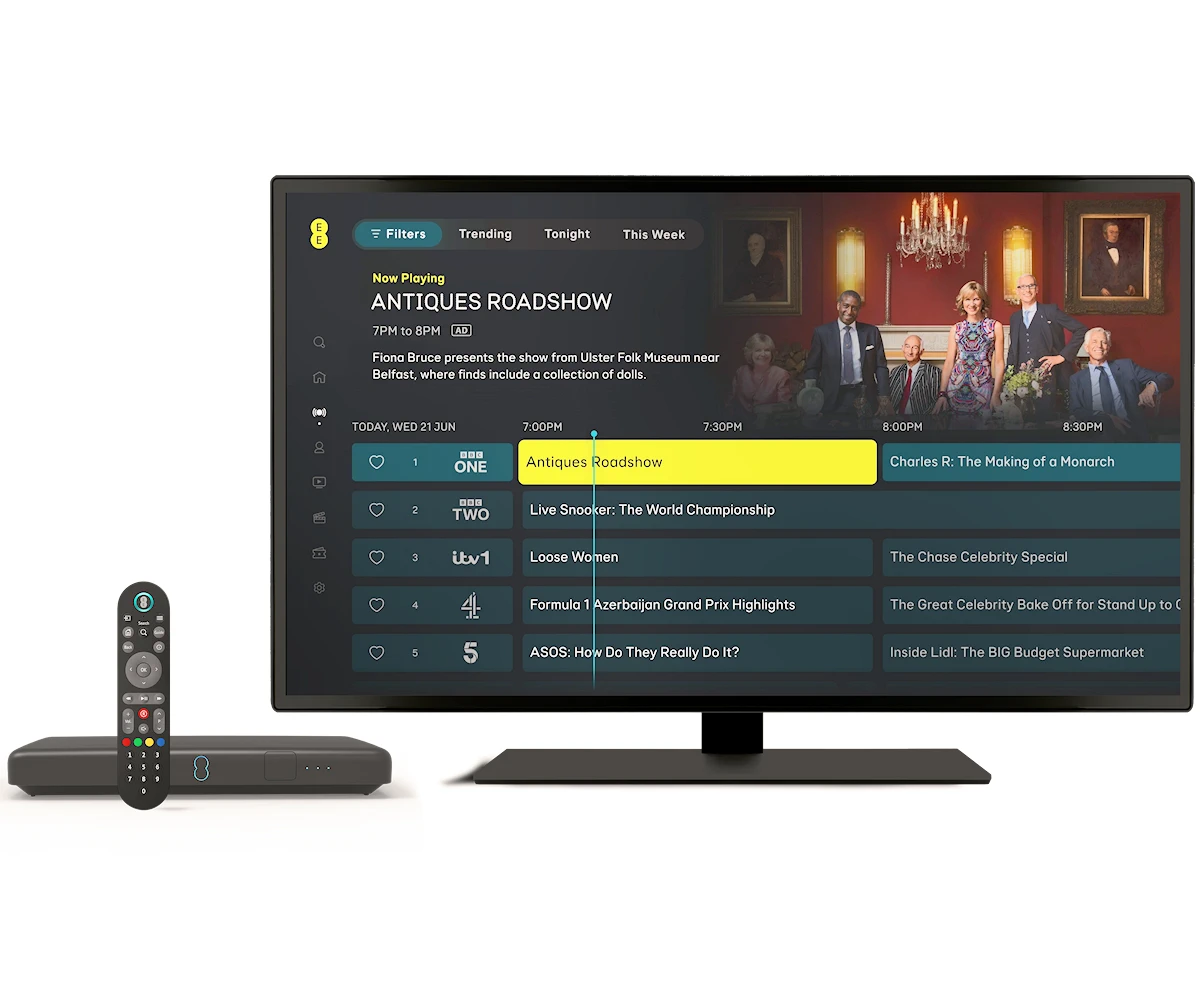



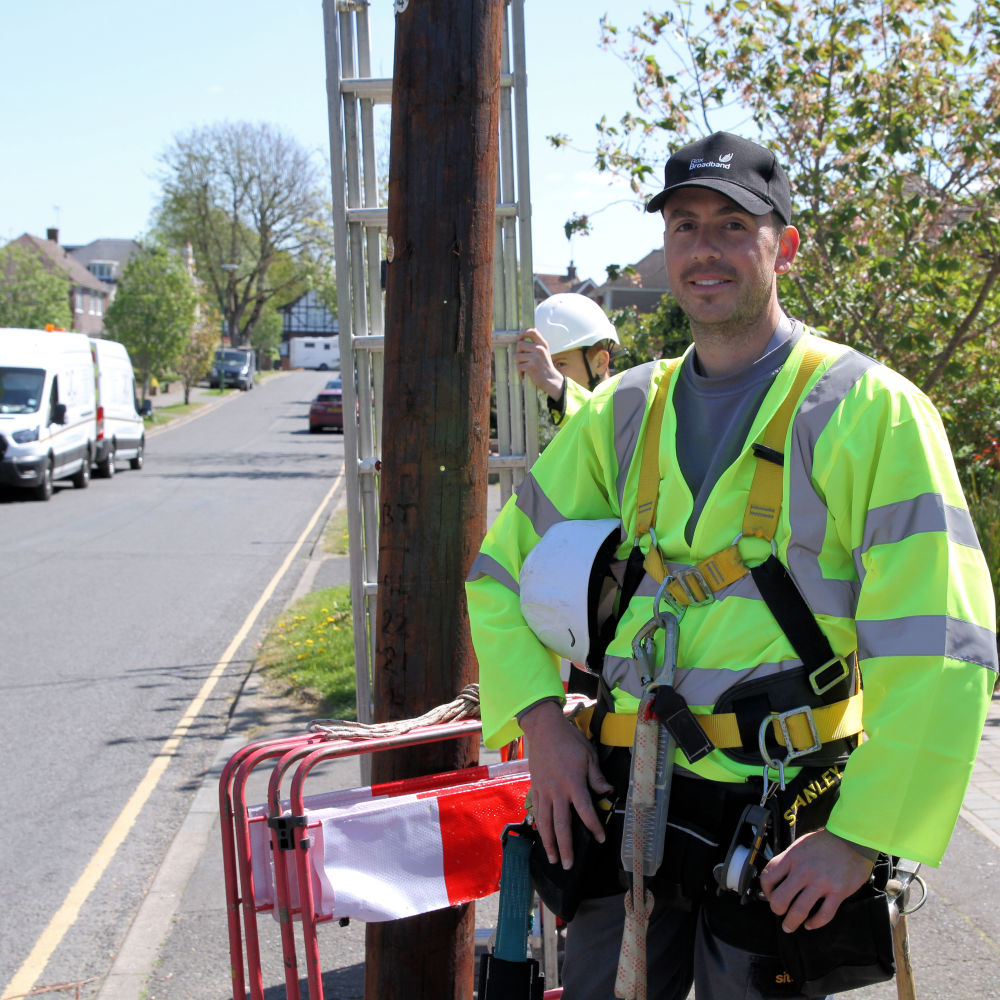
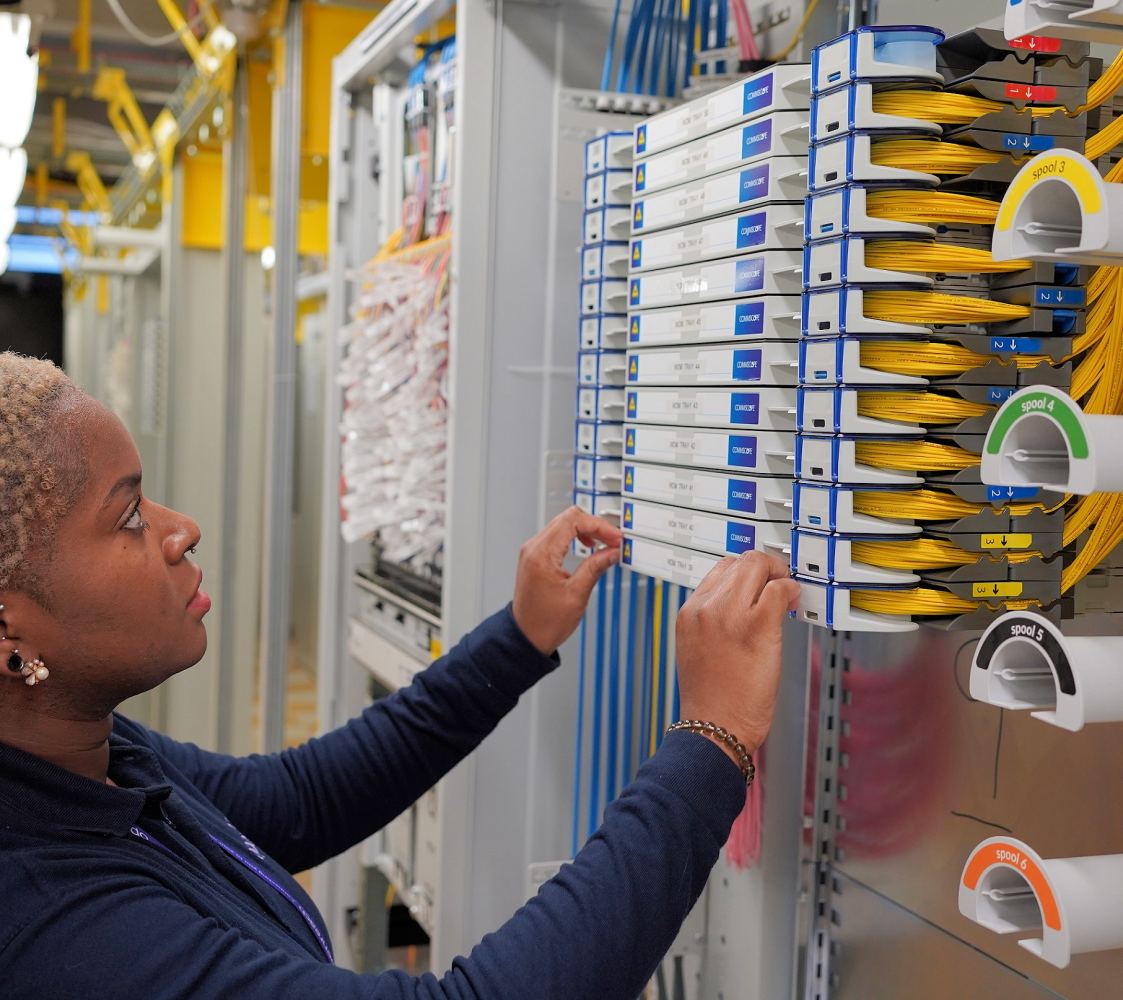
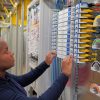










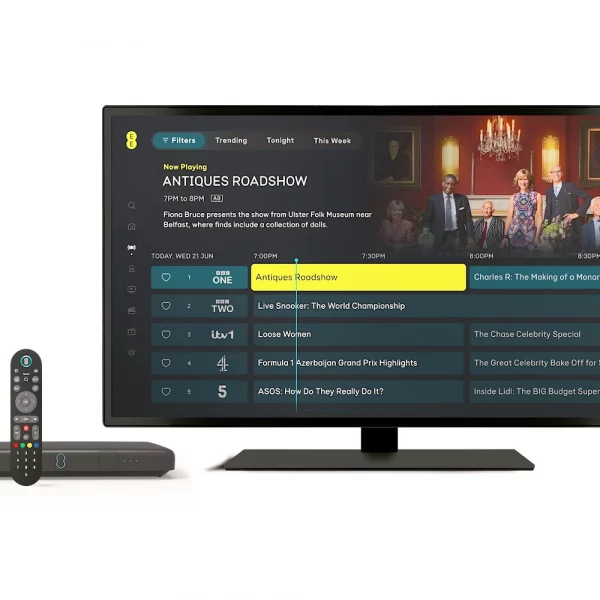



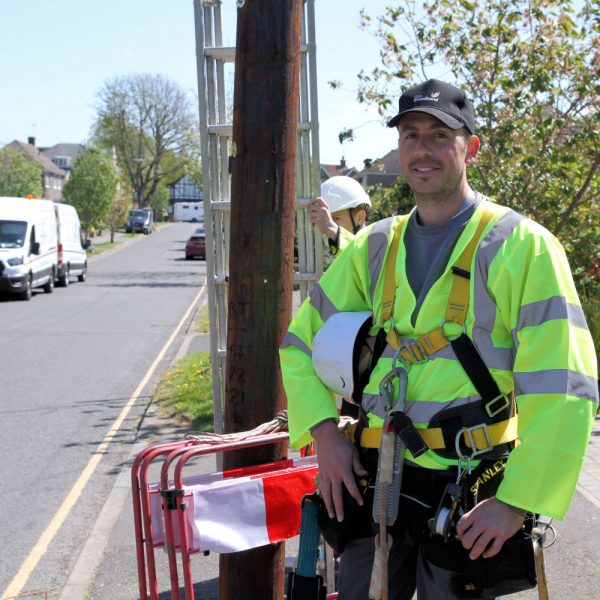































Another pretty meaningless report in my view. What is a more sensible measure is what speeds are available
We don’t always see what the ‘up to’ speeds are in day use. This is a good report to show the average measured by many devices around different parts of a country. I don’t think this is pointless.
Theoretically, almost everyone in the UK could get a 10gbps leased line to their house…
When Virgin Media first launched Gig1 it was £60pm, it’s a premium product but few will be willing to pay that much. It isn’t the same as gigabit being available for say £35pm.
Ooklas speed test is affected by multiple factors, the speed available, the price of higher speeds and what routers ISPs are sending out. It gives a more realistic image rather than just maximum speed.
I’d be interested in seeing comparison of the speeds from the four counties of the UK. Wales, Scotland, N Ireland, England.
I can only dream of 87mbps, currently on 3mbs with no plans in next couple of years to get any better.
Global Download – Fixed Line 87.79Mbps 72.40Mbps
UK Download – Fixed Line 84.93Mbps 69.76Mbps
UK Download as % of Global: 96.74% 96.35%
Global Upload – Fixed Line 40.45Mbps 31.16Mbps
UK Upload – Fixed Line 24.58Mbps 18.55Mbps
UK Upload as % of Global: 60.77% 59.53%
Virgin Media moved everyone on their cable network bar a few stragglers to a 10:1 ratio which will’ve improved the UK’s upload. Can’t really expect much more from them, that’s pretty good for a cable company and comparable to our international peers.
Openreach FTTP’s ratio is garbage and will hold the UK back. 4:1 at best and 15:1 at worst is way out of whack with most international peers and ensures the UK will struggle with upload on this metric: altnets can only compensate so far given the extra market muscle providers using Openreach have.
Interesting numbers but anyone expecting the UK to be anywhere other than, at best, mid-table obscurity is likely to be disappointed in the short and medium term. Our telco are building fibre but as far as products go have no interest in doing more than what is, as we go into 2024, the bare minimum to sweat the GPON as hard as possible while protecting the Ethernet products.
Yet another survey that shows we are falling behind and I’m afraid it’s true everywhere you look today. It’s about time we took our heads out of the sand and woke up. We cannot afford this arrogant attitude of “we don’t follow, we lead” etc. This country has a lot to learn from the rest of the world.
Sorry but that is nonsense.
As countless of there have said here this ‘league table’ does not reflect on what is available but more on what people chose to buy.
The fact is that for the vast majority of people a 5mbs connection is more than adequate at home. And because the vast majority of people in this country have had access to super fast speeds for many years, they don’t see reason to move to fibre when it becomes available.
A lot of other countries didn’t get anywhere near like the penetration of super fast ADSL via FTTC that the Uk did and have no gone straight to fibre.
But can anyone seriously articulate how the majority of people moving to connections which offer 100’s of Mbs throughout over fibre is actually giving these homes or their country’s economy an advantage of UK homes who are choosing to stay on super fast ADSL for now?
Likewise, when it comes to mobile the most demanding use case for a smart phone is HD streaming and that doesn’t require anything more than a 30Mbs connection. Far far more important to have excellent ubiquitous coverage and capacity everywhere than trying to increase speeds aimlessly over 5g, when no one actually needs speeds of 100’s of Mbs on their phone.
There are plenty of articles available on the web about how in korea where they deployed full 5g stand alone at scale before anywhere else, that they have failed to see the benefits realisation. There just aren’t any compelling mobile use cases for ultra fast 5g speeds.
I do appreciate that some will want/need to download large amounts of data such as a PlayStation game or HD film over fixed broadband, but seriously is this common place? And won’t most of these types of users have access to ultra fast speeds if they want to pay for them? Or can’t they just spend a little while downloading their file?
In any case I don’t see any of the results in Thai table showing that the UK is falling behind.
Far far more important that everyone everywhere ‘has access’ to ultra fast fibre broadband speeds if they want them, and a truly ubitous mobile connectivity, than focus obsessively on speeds as a measure of a country’s ISP success.
It is ridiculous that a G7 country should have such a poor performance. Openreach must be separated fully from BT and brought into public ownership with a mandate to implement world-class fixed line infrastructure.
Germany aren’t exactly rocking it either: lower fixed download speed than us due to VDSL use.
Far too late to nationalise BT: would’ve required producing an NBN and time for that was years ago. Highly competitive private sector that’s working very well at the moment.
We’ll be out of the 7 richest nations soon on GDP, are nowhere near on GDP per capita, remaining in the G7 for historical reasons if we’re lucky so a non-issue.
Let’s join up the logic . . . .(‘Cause Eton boys have difficulty with that when it doesn’t benefit them directly) . . .HMG is worried about poor educational attainment . . . .businesses increasingly need good internet access to be in the World market as the World economic focus switches to Central Europe and the Far East, the informational and educational resources on the internet dwarf anything available through schools and local trade databases . . . .the UK schema for introducing fibre to premises has been implemented using a model designed to ensure that the implementation speed is the slowest that could be achieved (i.e. lots of inexpert, small, under capitalised firms out for the quick profit)and, we’ve only recently just completed an unprecedented act of economic self-immolation by isolation, . . . and what a surprise, on average, we don’t make the top 50 as far as fixed-line download speeds and barely scrape into the group for mobile.
I suppose the current HMG attitude (Dickensian, at least if not 14th Century) is that as long as the city traders and Cambridge Analytica and the like have got competitive high speed links enabling their feasibility, everybody else can go whistle, and be grateful, poor and eat bug gruel.
For the benefit of the audience gigabit download is available to nearly 80% of the UK. The lower download speeds are not even largely an availability issue.
The top nation, Singapore, the biggest company don’t even sell anything below gigabit. The cheapest product is about £30 a month.
If Openreach switched off all the FTTC and forced everyone over to FTTP as their contracts expired with nothing below £30 a month available some on here would be complaining about being forced to move.
It’s not that it’s not available it’s that loads of slower, cheaper products are available and people either can’t afford the more expensive products or can’t justify the expense.
Broadband is way more expensive in Canada and the USA, too. They can afford it, though, and score higher numbers than us despite the much higher costs of providing services and retail monopolies: most of the UK is dirt poor and a fair amount of those of working age with good incomes are getting rinsed on housing.
This is what happens when you don’t have a national economic development policy on anything and play national economic activity and prosperity as a concatenated series of short-term profit maximising opportunities where the balance sheet is ruled exclusively at the level of the firm.
Middle class shareholders luv it, the rest of the population get shafted.
Well said, @Nick Roberts, Great description of the majority of the Altnets, their hope is to make a quick profit and then sell up to a bigger ISP.
So in the long term we will be left pretty much as we have today with 5 or 6 big players, running the show. Customers who are in an area and can get good symmetric speeds, jump on now, it won’t always be that way. The Fat Cats will have made their profits and have moved on to the next money making opportunity. The rollout of FTTP could have been handled so much better, and Government must take their fair share of the blame in that respect, as some consumers are getting connected to FTTP, while others can’t even get a service, down to adjoining streets in many instances.
Have a great 2024 to all the contributors on this site, and as some will remember many years ago when Jed Clampett and Family, of Beverly Hllbillies fame, would say, “You all come back now, Ye Hear”
*Hillbillies
Perhaps the way to have done it was by appointing over-arching project supervising contractors on a national basis, by means of competitive tender on a Firm price with the bid orientated at getting the 95% of users connected to fibre in the shortest time possible.The supervising contractor would be authorised to let sub-contracts for the regions on the same basis and the regional contractors would be responsible for hiring sub-contractors as necessary. That way everybody would have got a bite of the pie financially as well as from a skills and experience point of view i.e. national capability building. The advantage to the end-user would be that everything would be built to a common standard (Determined by the national supervising contractor and implemented regionally), there would be no cherry-picking or overbuilding – only minor territorial demarcation disputes between subbies (As usual ?).And contractors would have top-down financial backing making sure they didn’t go ponto or were taken-over mid-way through a job.
Dare I say, if they had at least part-financed it by Grant-in-Aid (Basically cash from the Government’s Consolidated Fund), as they are doing with HS2, contractors would have been queuing-up. And the important thing is that the lesser sized contractors would have had the opportunity to gain the necessary CV entries to put them in the frame for bigger jobs next time around (That’s what happened with the construction booms during WW2 (Airfields, port facilities, army camps etc) the late 1950s and early 1960s construction boom and North Sea Gas installation.
Obviously, the HMG (and this goes back to the last Labour Government as well as the Tories) think that HS2 is more important than quality internet connections.
The way its been implemented is just holding back progress, by ensuring that Britain continues to pay-over the odds for imported stuff (Through lack of competition) which, of course, benefits the ancient and venerable holders of existing import rights and can’t progress as fast as it could with export trade.
But don’t worry the economic model of which this measure is part, has about the same accuracy and integrity as the COVID escalation predictions produced by Imperial, based on the assumption that by 2035 Britain will be an all-service economy, be over-taking Germany (As their OAP demographic bulge and loss of industry to the Far East starts to hit) and that the Brexit dividend of £350 million a week for the NHS will eventually roll-up at the Treasury together with the promisory bus.
If you believe that . . . .
Now that you have your new year’s rant out of the way…
A few things in there that merit an answer but there’s no point: in one ear and out of the other even if read.
I guess the reasons are UK Eyes only . .that’s why we are not allowed to know.
What sort of administrations over the last 20 years (Tories and Blue Labour) with their heads screwed-on correctly, would have rated HS2, which, in terms of national economic development priorities, is essentially side-show-Bob in terms of the numbers benefiting, over securing 95% coverage for commerce, industry and household fibre connections. But they did.
Why ? Because its about the preservation of existing vested interest over change, . . .handing taxpayer dosh out to your ivory tower mates . . . and restricting economic growth and control to the South-East.
The missing bit of information is cost to the end consumer as a comparator.
Do we get what we pay for? (£ per Mb comparison)
Do we get what we are *willing* to pay for? (ranking of £ per Mb).
It is a reasonable option to accept a slower speed for a cheaper price. Some countries are quite expensive for a higher speed (or indeed any speed). e.g. compare US/UK for availability/speed/price.